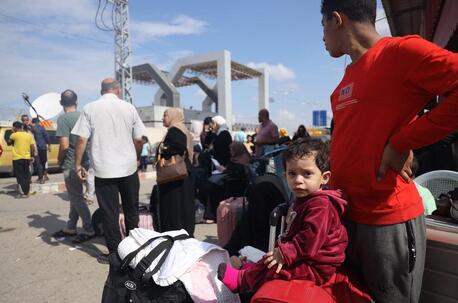
First Trucks Cross Into Gaza With Supplies for Children Caught in Conflict
Amid calls for an immediate end to all hostilities, UNICEF is working closely with partners to rush emergency humanitarian aid to children trapped in an unfolding catastrophe in Gaza. More help is needed.
A 20-truck humanitarian convoy carrying urgently needed emergency supplies entered southern Gaza through the Rafah border crossing on Saturday, Oct. 21, including over 44,000 bottles of drinking water — enough for 22,000 people for one day — supplied by UNICEF.
This first shipment of lifesaving aid from UNICEF and partners will help address the escalating needs of some of the hundreds of thousands of children who remain trapped in a war zone with little or no access to food, water, electricity, medicine or medical care two weeks after deadly attacks in Israel gave way to devastating retaliatory air strikes in Gaza.
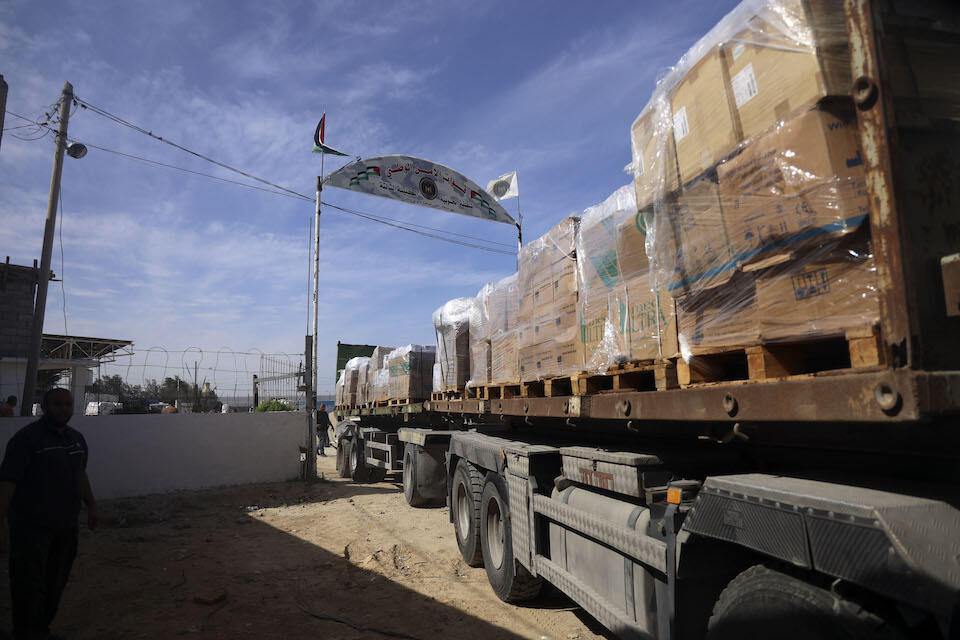
UNICEF continues to call for an immediate ceasefire as 1.1 million people — nearly half of them children — in northern Gaza have been warned to move out of the way of a widescale military assault, but with nowhere safe for them to go.
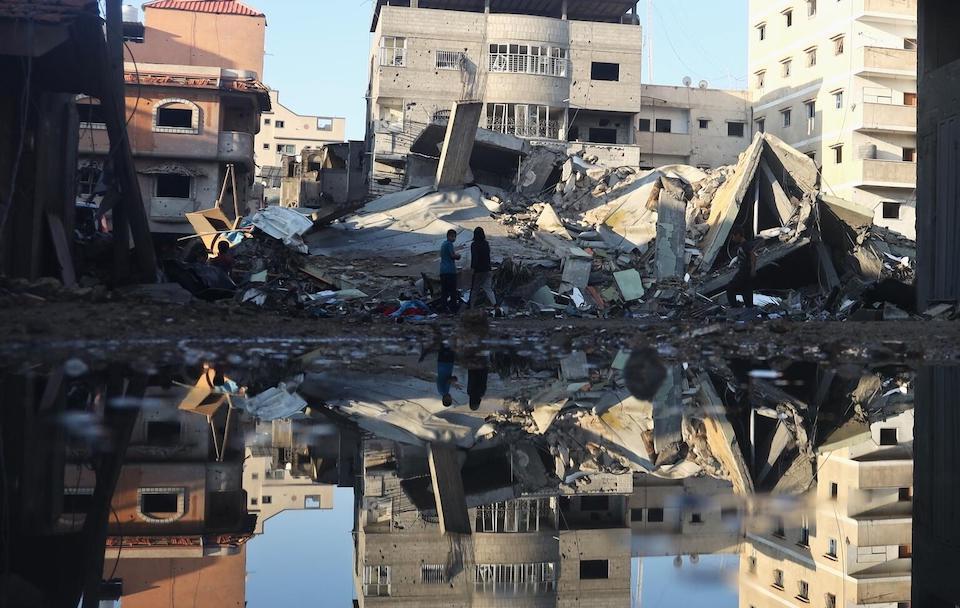
Every child is entitled to protection from harm according to international law
Attacks on civilians and civilian infrastructure are violations of international humanitarian and human rights law. UNICEF is calling for all parties to the conflict to unconditionally protect children from harm and afford them the special protection to which they are entitled, including safe and timely access to humanitarian aid.
“Every child, everywhere deserves peace,” said UNICEF Executive Director Catherine Russell.
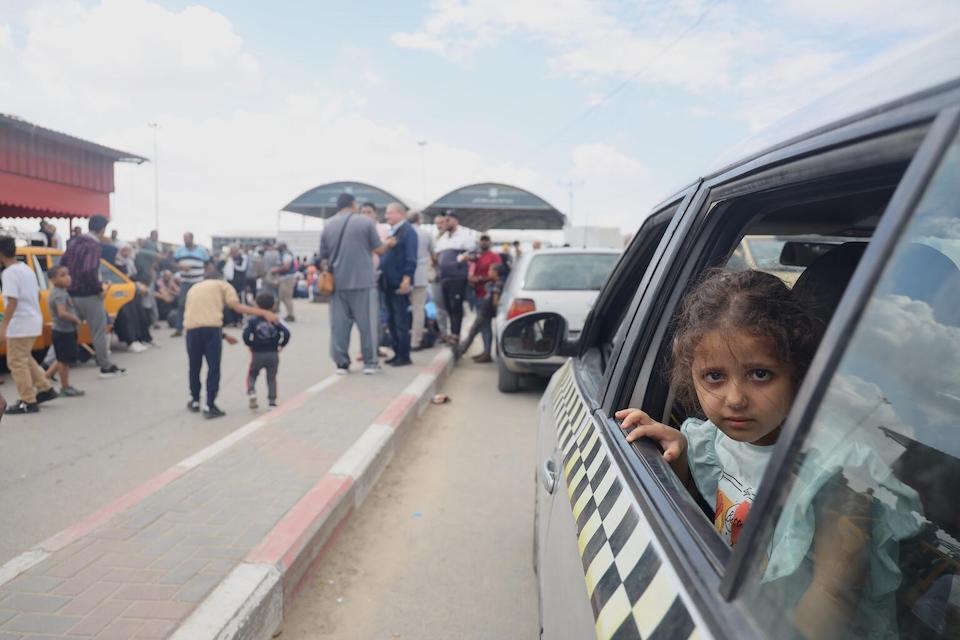
UNICEF is working with partners to reach children and families in Gaza conflict with urgently needed water, hygiene, sanitation and medical supplies
Large parts of Gaza’s infrastructure, including critical water and sanitation systems, have been reduced to rubble in nearly two weeks of escalating attacks and bombings. Water production is at 5 percent of normal levels. With safe water supply dwindling, people have resorted to boiling muddy water, increasing the risk of waterborne disease outbreaks, and drinking seawater, which causes extreme dehydration.
UNICEF has provided 50,000 liters of fuel, pre-positioned in the Gaza Strip, along with water supplies to support 800,000 people with access to minimum quantities of safe water. The UNICEF desalination plant is the only one still functioning in the Gaza Strip, where nearly 2.3 million people live, crowded into 140 square miles. UNICEF has also delivered an emergency cash transfer to 1,057 households in Gaza to help parents meet their children's basic needs.
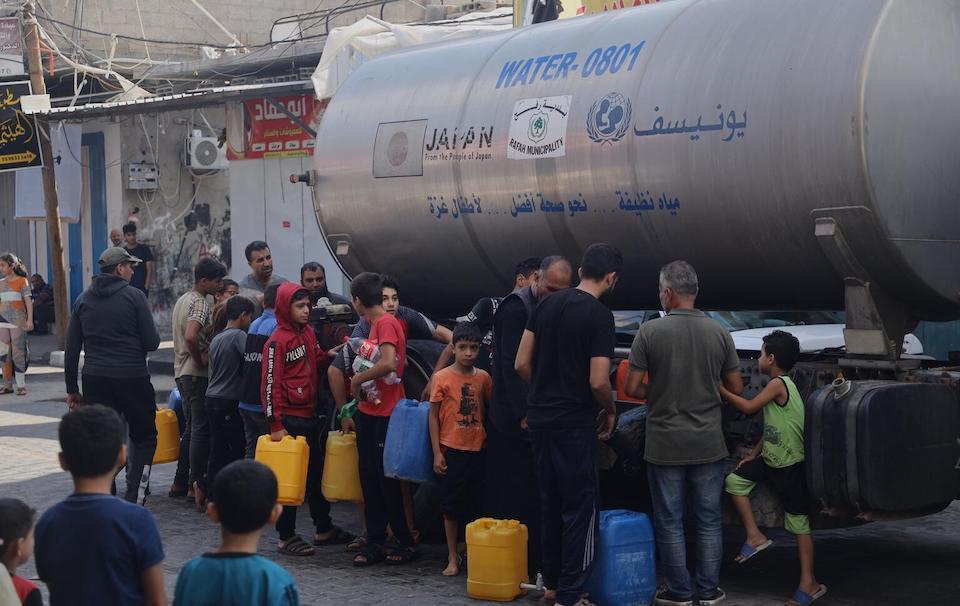
More supplies are arriving from UNICEF's central warehouse in Copenhagen
UNICEF has increased staff surge support in Egypt and pre-positioned lifesaving supplies at the Rafah crossing for delivery to support at least 250,000 people in Gaza.
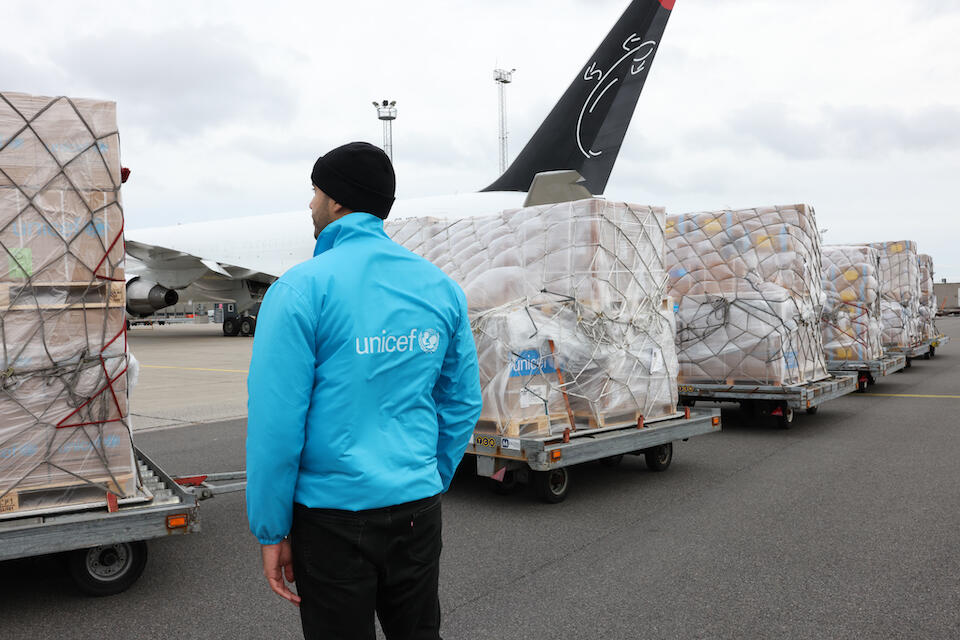
In addition to the water delivered today, supplies UNICEF has procured and delivered to Egypt for the Gaza Strip include:
- 70 health consumable kits containing essential medicines and medical devices to benefit 70,000 people for 3 months
- 4 medicine kits to benefit 40,000 people for 3 months
- Emergency household water storage containers and hygiene kits to benefit more than 270,000 people
- 200,000 liters of fuel
- education and protection supplies including recreation kits, tarpaulins, tents and thermal blankets
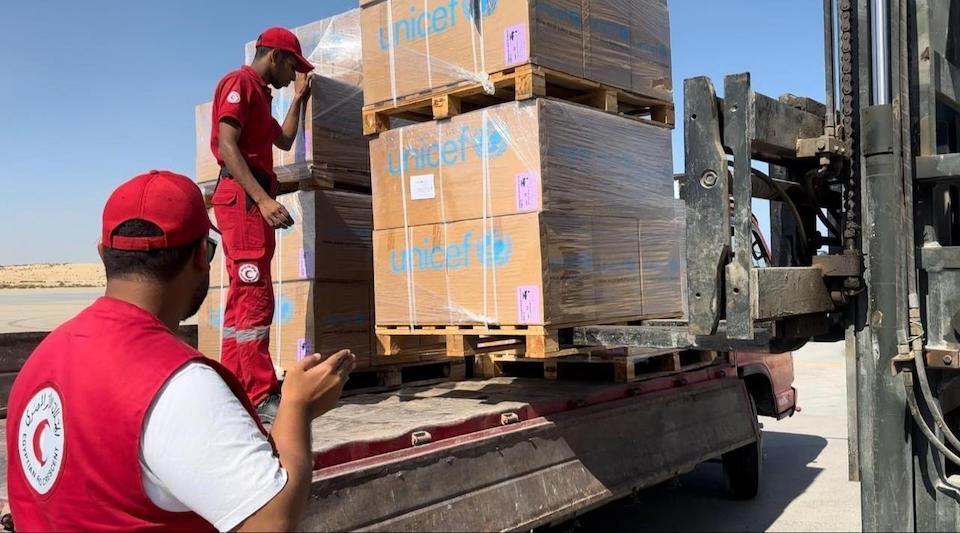
Continuous access to Gaza is essential for urgent humanitarian deliveries
"With one million children in Gaza now facing a critical protection and humanitarian crisis, the delivery of water is a matter of life or death. Every minute counts," said Russell. "This first, limited water will save lives, but the needs are immediate and immense — not just for water, but for food, fuel, medicine and essential goods and services. Unless we can provide humanitarian supplies consistently, we face the real threat of life-threatening disease outbreaks."
UNICEF's response will continue to focus on responding to the needs of children currently facing an urgent and pressing need for protection and humanitarian assistance. Your contribution can make a difference. Please donate.
HOW TO HELP
There are many ways to make a difference
War, famine, poverty, natural disasters — threats to the world's children keep coming. But UNICEF won't stop working to keep children healthy and safe.
UNICEF works in over 190 countries and territories — more places than any other children's organization. UNICEF has the world's largest humanitarian warehouse and, when disaster strikes, can get supplies almost anywhere within 72 hours. Constantly innovating, always advocating for a better world for children, UNICEF works to ensure that every child can grow up healthy, educated, protected and respected.
Would you like to help give all children the opportunity to reach their full potential? There are many ways to get involved.





